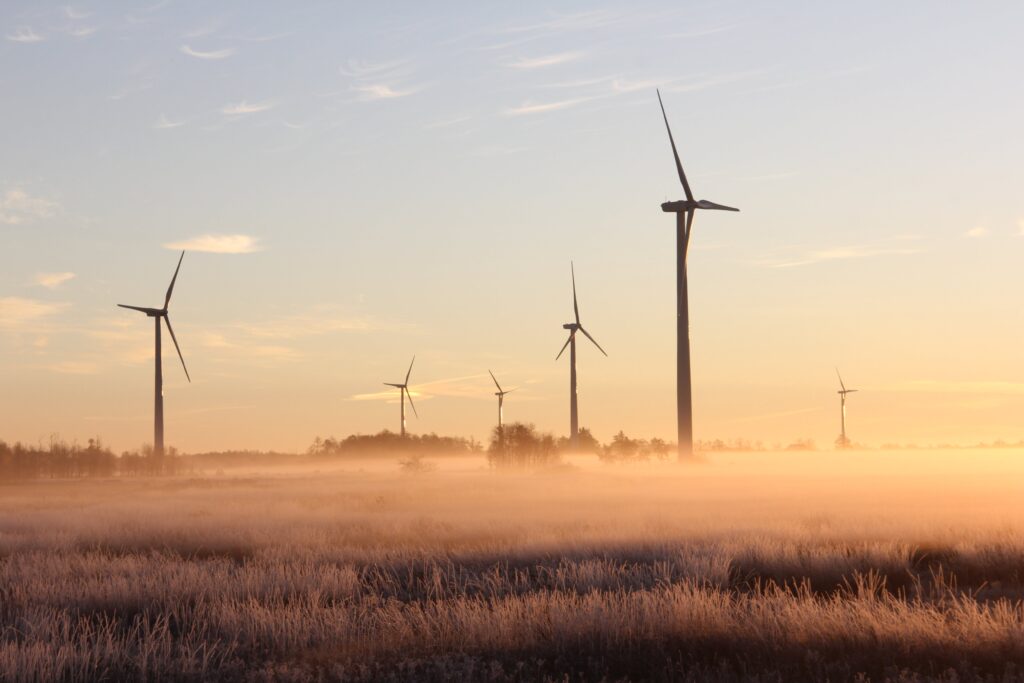
As the world faces pressing challenges such as climate change, depleting fossil fuel reserves, and increasing energy demand, the future of energy has become a topic of great importance. The way we generate, distribute, and consume energy is undergoing a transformative shift towards a more sustainable and efficient system. In this journal, we will explore the potential trajectories and technologies shaping the future of energy and their implications for the environment, economies, and society.
Renewable Energy Sources
- Solar Power: Solar energy is a key player in the future of energy. With advancements in photovoltaic technology and falling costs, solar power has the potential to become a dominant energy source. Wide-scale adoption of solar panels, both at the residential and utility scale, can contribute to a decentralized energy system and reduce reliance on fossil fuels.
- Wind Power: Wind energy has experienced significant growth in recent years and is expected to play a major role in the future energy landscape. Advances in wind turbine technology, offshore wind farms, and grid integration have made wind power increasingly cost-effective and reliable, enabling it to become a key source of clean energy.
- Hydropower and Geothermal Energy: Hydropower and geothermal energy are established renewable energy sources that will continue to contribute to the future energy mix. Hydropower, through dams and run-of-river installations, can provide reliable baseload power. Geothermal energy taps into the Earth’s heat to generate electricity and heat buildings, offering a consistent and sustainable energy source.
FREE Buyer Traffic On Autopilot In Any Niche! Learn More
Energy Storage and Grid Integration
- Battery Technology: Advances in energy storage technologies, particularly battery storage, are crucial for the future of renewable energy. Batteries can store excess energy generated by renewable sources, ensuring a steady supply during periods of low generation. Improved battery performance, cost reductions, and scalable solutions can enhance grid stability and facilitate the integration of intermittent renewables.
- Smart Grids and Demand Response: The future of energy will see the rise of smart grids and demand response systems. Smart grids utilize digital technology to optimize electricity generation, transmission, and consumption, enabling efficient management of renewable energy resources. Demand response programs encourage consumers to adjust their energy usage based on supply availability and price signals, promoting a more flexible and sustainable grid.
- Grid Interconnections and Microgrids: Interconnecting regional grids and integrating microgrids can enhance the reliability and resilience of the future energy system. Interconnections allow for the sharing of renewable energy resources across regions, while microgrids provide localized energy generation and distribution, reducing dependence on centralized power plants and improving energy security.
Energy Efficiency and Conservation
- Building Efficiency: Improving the energy efficiency of buildings is a critical component of the future energy landscape. Energy-efficient building designs, insulation, smart controls, and efficient appliances can significantly reduce energy consumption and carbon emissions. Retrofitting existing buildings to meet higher efficiency standards is also important.
- Transportation Transformation: The future of energy will witness a shift towards electrification and alternative fuels in the transportation sector. Electric vehicles (EVs) are becoming increasingly popular, while advancements in battery technology and charging infrastructure are addressing range anxiety concerns. Additionally, the adoption of hydrogen fuel cells and biofuels can contribute to decarbonizing transportation.
- Industrial and Commercial Sectors: Energy efficiency measures in industries and commercial sectors can lead to substantial energy savings. Implementing energy management systems, optimizing production processes, and adopting cleaner technologies can reduce energy intensity and contribute to a more sustainable future.
FREE Buyer Traffic On Autopilot In Any Niche! Learn More
Emerging Technologies
- Nuclear Power: Advanced nuclear power technologies, such as small modular reactors (SMRs) and fusion reactors, hold promise for the future energy landscape. SMRs offer enhanced safety features, flexibility, and scalability, while fusion reactors aim to replicate the energy-producing processes of the sun. However, challenges related to cost, waste management, and public acceptance need to be addressed.
- Hydrogen Economy: Hydrogen has the potential to become a significant energy carrier in the future. Through electrolysis powered by renewable energy, hydrogen can be produced and stored as a clean fuel source. It can be used in various sectors, including transportation, industry, and power generation, offering a versatile and zero-emission energy solution.
- Artificial Intelligence and Energy Management: The integration of artificial intelligence (AI) into energy systems can optimize energy generation, distribution, and consumption. AI algorithms can analyze vast amounts of data, optimize energy flows, and predict demand patterns, enabling more efficient energy management and grid operations.
Conclusion
The future of energy holds immense potential for a sustainable and resilient global energy system. Renewable energy sources like solar, wind, hydropower, and geothermal are becoming increasingly cost-effective and scalable. Energy storage technologies, smart grids, and demand response systems are enabling the integration of renewables and enhancing grid stability. Energy efficiency measures in buildings, transportation, and industries are reducing energy consumption and carbon emissions. Emerging technologies like advanced nuclear power and hydrogen offer additional possibilities. The successful transition towards a sustainable energy future requires collaboration between governments, industries, and individuals, supported by favorable policies, research, and investment. By embracing these advancements and working towards a cleaner and more efficient energy system, we can alleviate the environmental impacts of energy production and consumption while fostering economic growth and improving the quality of life for future generations.